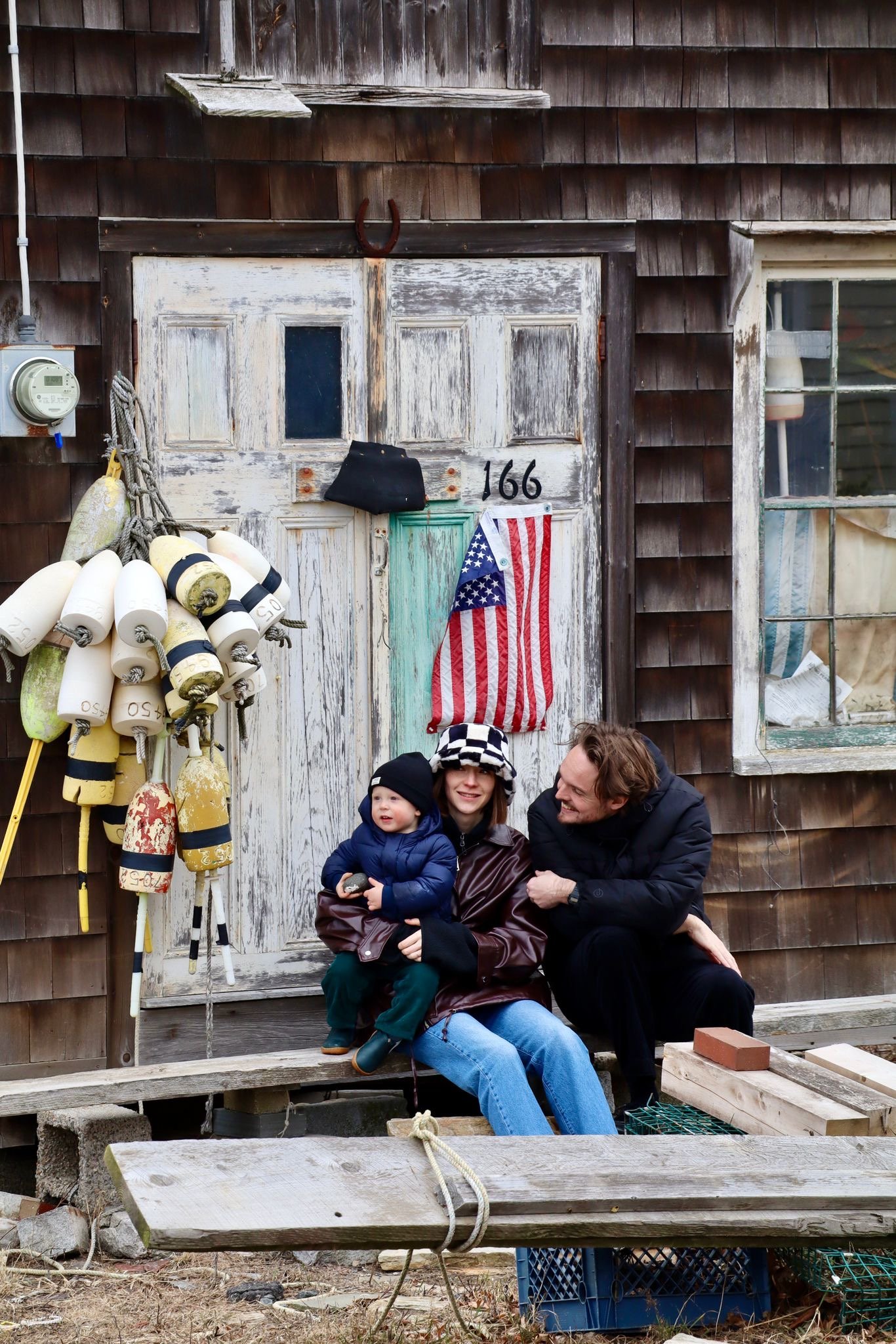Lev’s Musical Journey in Baby Bach: A Mother’s Reflection
A musical journey begins — Lev with his parents, Elija and Rik
I started Baby Bach in November 2024 with the idea that young children don’t need to wait to be “ready” for music — they’re already listening. I wanted to create a space where toddlers and their families could explore the foundations of piano, violin, rhythm, and movement through listening and singing — using the works of the great classical composers as our guide.
Now in our fourth semester, what began in Mid-Cambridge with just a few families has grown into a warm and connected musical community. Each week, we sing, move, play, and discover how classical music can become part of a child’s earliest memories.
One of the first families to join Baby Bach was Rik, Elija and their son, Lev.
Elija and her husband moved to Cambridge from the Netherlands for her academic journey at Harvard. From the beginning, their presence in class brought thoughtfulness, warmth, and connection. Lev approached music with wonder — sometimes playful, sometimes serious, always curious. Elija’s reflections below beautifully capture their journey, and I’m honored to share them here in her own words.
A Mother’s Reflection — Elija, Baby Bach Parent
1. What inspired you to sign up Lev for the Baby Bach class here in Mid-Cambridge?
When my husband and I heard about the Baby Bach class, we didn’t think even for a minute - we knew right away that it was a great opportunity to let our son Lev explore music at such an early age. We both feel it is important to expose him to beautiful things from young age to develop curiosity and understanding - and classical music is one of those things.
2. Were there any moments in the Baby Bach class where you noticed how Lev responded to classical music — something that surprised you, stayed with you, or felt special to witness as a parent?
Every week Lev had a new exploration process. Sometimes he came at it with a playful mood, sometimes with serious — but every single time the classes provoked a new relationship with music instruments, notes, sounds, and his own body movements. He sometimes dances, sometimes sings, sometimes listens, all of which are such important senses to develop for a child.
At just two years old, Lev doesn’t need to read notes — he reads through vision, movement, and trust. By watching, listening, and matching the teacher’s hands, he begins to understand music as something felt and mirrored, long before it's ever written down.
3. Were there any moments in class that felt joyful or meaningful — either as a mom or just seeing Lev explore in a new space?
My favourite moment was when I saw him trying to hold the violin all by himself — without the support of the teacher. He was so focused and determined to experience making his own sound!
Lev holding his first real violin — focused and proud
4. I know you’ve built such an inspiring path — would you feel comfortable sharing a little about your background or career?
My husband and I are both architects from the Netherlands, and we moved to Cambridge for my study here. Being complete outsiders, this class made us part of a very special community of parents and children in Cambridge. Not only with our own son — we are also so joyful to see the development of all the children in our group. We often laugh, whisper to each other, help other kids during the lessons — it’s an intimate setting where we share many emotions.
Rhythm Through Verdi
Singing an aria from Verdi’s Aida to guide toddlers in learning rhythm, beat, and counting — classical music becomes a tool for movement, listening, and self-regulation.
5. Is there anything you’d want to share with other parents thinking about early music education?
I want to say that this class is a very unique opportunity and experience. The methodological approach of Sofiya helps children to construct a clear, predictable flow which helps to build up their learning from class to class. It’s not just entertainment, it’s a class that helps develop many senses, emotions, reactions, and so on. At the same time, Sofija’s patience and love for the kids makes it so easy to go through the lessons which are sometimes chaotic because of the behavioral nature of toddlers. She is really good at capturing their attention and keeping them engaged. I highly recommend these lessons to anyone who has a little one!
Closing Thoughts
Thank you, Rik, Elija and Lev, for being part of Baby Bach from the very beginning. Your presence helped shape this program into what it is today — a space where we listen deeply, grow slowly, and learn joyfully.
In Baby Bach, children aren’t just playing instruments. They’re learning how to feel a beat, how to recognize fast and slow, quiet and loud, and how to connect these concepts to the music of Bach, Beethoven, Mozart, Tchaikovsky, and other great composers — all through songs and movement designed for their age and curiosity.
This is music education that begins with listening — and ends with confidence, joy, and a lasting connection to music.
And as Lev and Elija step outside, the music stays with them — not just in melodies, but in moments, memories, and the quiet rhythms of connection that continue long after the last note fades.
After class, before the next adventure — carrying the rhythm home, one smile at a time.
*
And after all those quiet beginnings, here’s where the journey led — a simple, beautiful moment at the piano.
“Up and Down” is based on Mozart’s Eine kleine Nachtmusik, adapted for early learners to explore pitch, direction, and emotion through guided singing and movement.





